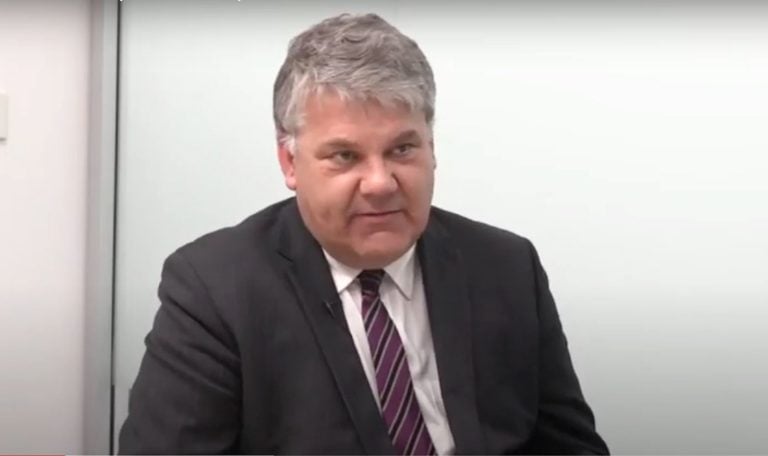The economic statement released on Thursday morning by Australia’s Treasurer Josh Frydenberg was grim, and a stark reminder of the huge economic disruption caused by COVID-19.
Mr Frydenberg compared the economic fallout to that of the Great Depression in 1930 with the deficit estimated to rise at $184.5 billion in 2020-21.
Neos Kosmos spoke to top Greek Australian economists Stephen Koukoulas, head of Global Strategy and advisor to former prime minister Julia Gillard, along with Dimitris Salampasis, Director for the Master of Financial Technologies at Swinburne Data Science Research Institute, and Kosmas Smyrnios, Professor of Family Business Entrepreneurship at RMIT to find out what the economic and budgetary fallout from a deficit will mean for ordinary Australians.
“I would say that more than a crisis, we are in the midst of a shock,” Professor Smyrnios told Neos Kosmos. “It is a shock that has reverberated at all levels of society. It is affecting us as individuals, affecting our families, affecting organisations, businesses as well as the community and you can extend that to the entire nation.”
Dr Salampasis states that we are seeing an unprecedented change and the “dramatic redefinition of conventional and ‘business-as-usual’ narratives.
Stephen Koukoulas says, “The things that are concerning include the outlook for housing, with immigration levels near zero which will mean demand for new housing will be very weak. It is also important to note that tourism, hospitality and foreign students at Australian universities will be weak until the borders reopen.”
Nonetheless, all three economists believe that the debt at this point is manageable, assuming of course the present lockdown in Melbourne and the Mitchell Shire lasts only six weeks and is followed by a gradual return to normality.
READ MORE: Australia’s worst economic disruption since WWII is still better than the Greek debt crisis

The government’s handling
Stephen Koukoulas: “Generally speaking the government has taken steps in the right direction to protect people from the virus and to support the economy. if anything, the level of financial support through extra spending and tax changes has been too low and slow to be implemented. It has shown in its budget update how extra government spending helps the economy and helps to support jobs – additional spending beyond what it has already delivered would have had an even stronger impact. this could have been in the form of infrastructure spending, investments in renewable energy and housing.”
Dimitris Salampasis: “I believe the government is on the right track, but I really expect an in-depth ‘audit’ of Australia’s business and societal model. What I wouldn’t like to see would be a ‘protectionism’ and a ‘nationalisation’ regime; rather than an open country and economy that welcomes talent, that further promotes safety, diversity and inclusion and becomes a global and competitive hub for innovation, entrepreneurship and technological advancements. Moreover, I hope that Australia will adopt a diversification strategy moving beyond the dependence on a single economy or a regional zone and open up to the world.”
Kosmas Smyrnios: “What the government is doing is reacting to situations with short-term solutions rather than being proactive. There seems to be very little integration as to what is being implemented. This pandemic is affecting people affecting emotionally, psychologically, socially and economically, so the government might be addressing the very short term economic aspects but it is not addressing the other variables. What do we need? People need surity, business people need to be confident and these are not present. There needs to be integration between elements. The government needs to be more proactive in its approach and to start to anticipate where we are going to be at in several weeks time, several months time. Can the government anticipate where we are going to be? What is the economy is going to be like? Let’s start developing and implementing macro policies that will assist that and address those issues. We also need better integration between government at all levels and there seems to be this apparent lack of integration between federal and state. From a business perspective these short term measures are really bandaids. Once you remove these there will be scarring. JobKeeper and JobSeeker are short term solutions, but businesspeople still need to pay rates, telecommunications, energy bills, rents.”

Opportunities
SK: “It is not clear which parts of the economy will come out of it looking better – it is too early to be sure. That said, it is clear to all that the role of the government in economic management is vitally important which should silence those against ‘big’ government at least for a while. Government assistance in JobKeeper has been useful, so too in the areas where it has allowed tax payments to be postponed for many businesses.”
DS: “Definitely every crisis is also a big opportunity for change. I thing the biggest lesson so far is that nothing can be taken for granted and that we shouldn’t be expecting a return to our previous lives. Since the pandemic has really and massively disrupted business globally, I consider that now it’s time to move forward with transformative initiatives across every lead of life the Greek-Australian population is a neuralgic backbone of the Australian economy and society and I would like to see visible initiatives and presence during this economic downturn, especially from the young population and talent, along with, stronger ties to Greece.”
KS: “We can see that the economy is becoming increasingly cashless, it has changed the way in which we educate people, it has changed the health system and they way we purchase and do things, it has changed our supply change. One thing i have really noticed is that the global aspects have changed irreparably… in other words, maybe this is the time for the govt to support manufacturing at a regional level. America and Britain are leading the way. Another thing I’d like to see is government providing micro loans at very low interest or no interest loans for the establishment of microbusinesses at a local community level. I see that as being in line with the Australian ethos.”

Recovery
SK: “A vaccine will solve most of the economic problems. While it will take some time for everyone to be vaccinated even when one is discovered. When this occurs, global trade and personal movements (tourism) will return. Current estimates suggest a full economic recovery, including getting the unemployment back down to 5 per cent will be around a year after the vaccine is found.”
DS: “I am confident that the Australian economy is very well-positioned financially to be able to overcoem all these challenges and manage the immediate short- mid- and long-term impact. however I also thing that going forward and beyond this large deficit will require strong fiscal discipline and substantial structural reforms. The challenges and the rapid econoic, political and social repercussions will be profound and long-lasting even after a vaccine is found.”
KS: “It is problematic that we are placing emphasis on a vaccine and a cure because it is the other practices that are effective to keep in place. Even if their was a vaccine, how are you going to vaccinate 7.4 billion people? That would take years. From my point of view is not bouncing back but bouncing forward.”
